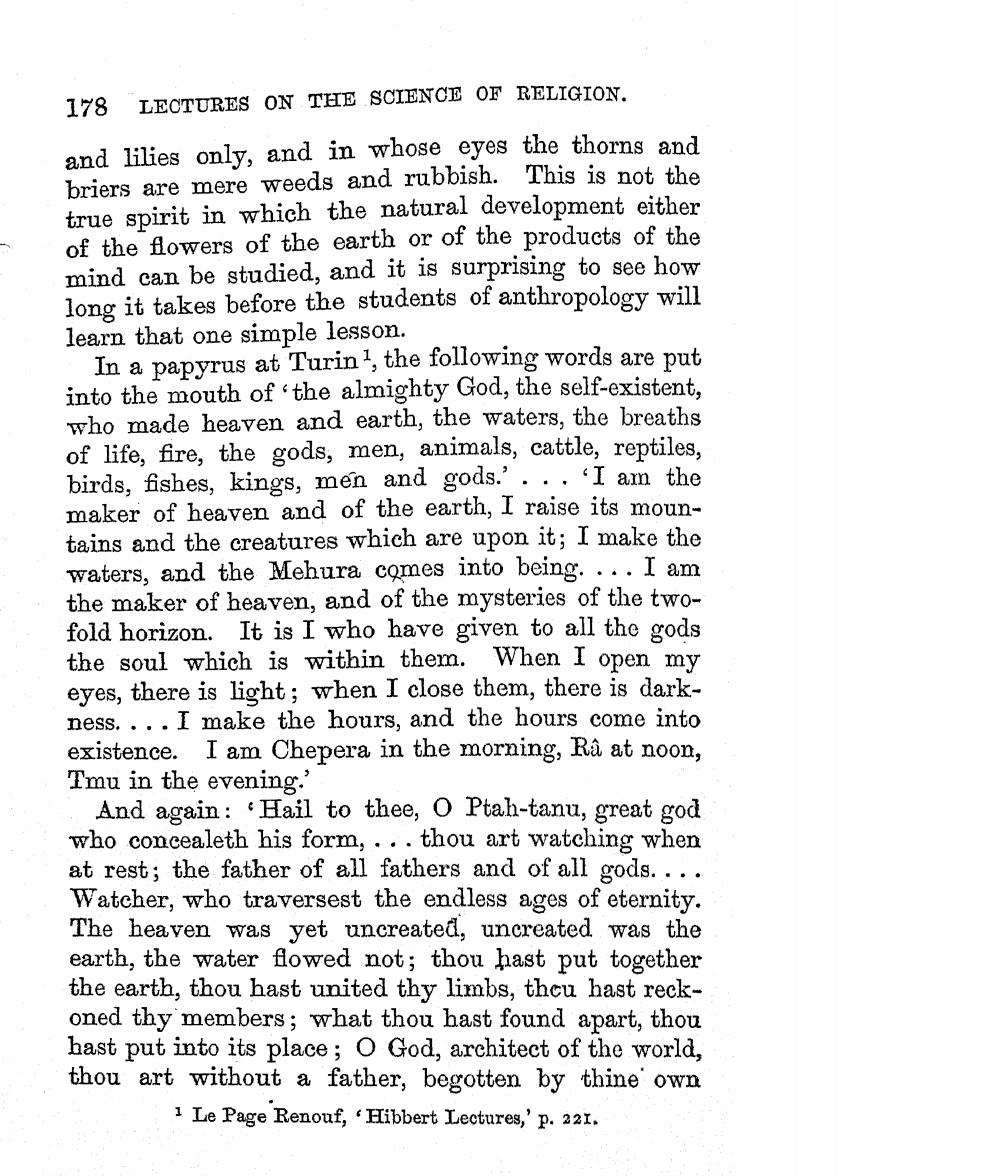________________
178
LECTURES ON THE SCIENCE OF RELIGION.
and lilies only, and in whose eyes the thorns and briers are mere weeds and rubbish. This is not the true spirit in which the natural development either of the flowers of the earth or of the products of the mind can be studied, and it is surprising to see how long it takes before the students of anthropology will learn that one simple lesson.
In a papyrus at Turin1, the following words are put into the mouth of 'the almighty God, the self-existent, who made heaven and earth, the waters, the breaths of life, fire, the gods, men, animals, cattle, reptiles, 'I am the birds, fishes, kings, men and gods.' . maker of heaven and of the earth, I raise its mountains and the creatures which are upon it; I make the I am waters, and the Mehura comes into being. the maker of heaven, and of the mysteries of the twofold horizon. It is I who have given to all the gods the soul which is within them. When I open my eyes, there is light; when I close them, there is darkness. . . . I make the hours, and the hours come into existence. I am Chepera in the morning, Râ at noon, Tmu in the evening.'
And again: Hail to thee, O Ptah-tanu, great god who concealeth his form, . . . thou art watching when at rest; the father of all fathers and of all gods. . . . Watcher, who traversest the endless ages of eternity. The heaven was yet uncreated, uncreated was the earth, the water flowed not; thou hast put together the earth, thou hast united thy limbs, theu hast reckoned thy members; what thou hast found apart, thou hast put into its place; O God, architect of the world, thou art without a father, begotten by thine own
1 Le Page Renouf, Hibbert Lectures,' p. 221.




